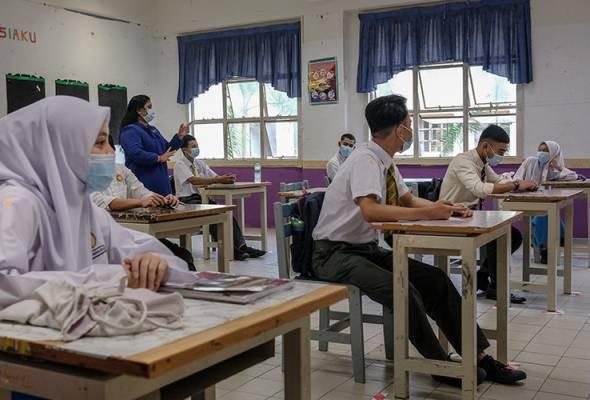KUALA LUMPUR, Aug 26 — The efforts of the Ministry of Education (MOE) to develop a new school curriculum by re-evaluating challenging subtopics in the syllabus that do not align with students’ needs shows its commitment to implementing national education transformation.
National Parent-Teacher Association Consultative Council (PIBGN) president Associate Professor Datuk Dr Mohamad Ali Hasan said the curriculum development, which also takes into account the views of experts, stakeholders and the general publicm is also an effort to ensure the national education system is more relevant and resilient.
“Education is a determinant of the country’s future and that is why we want the curriculum developed to really meet the country’s needs and learning content that does not burden students.
“In this case, the subjects taught should not be theory-heavy, especially mathematics and science, but it should instead be emphasised in a practical form so that students understand and are able to appreciate the principles that are taught,” he said.
Mohamad Ali also suggested that the religious subject be revamped to emphasise character and human development because it can play a role in shaping the student’s identity and moral values.
Earlier, the MOE said that it was taking immediate action to ensure that the teaching and learning process (PdP) and assessment were carried out effectively by re-evaluating challenging subtopics in the syllabus that do not align with students’ needs.
It said 1,600 participants, including teachers, lecturers, parents, non-governmental organisations (NGOs) and industry representatives, had engaged in 21 sessions and the Curriculum Convention to develop a new school curriculum.
The MOE will also conduct an online review of the 2027 School Curriculum from Aug 25 to Sept 15 via the link https://bit.ly/KurikulumKita2027 to give everyone the opportunity to express their views.
Meanwhile, National Union of the Teaching Profession (NUTP) secretary-general Fouzi Singon described the effort to reassess the subtopics in the school curriculum as timely since the current syllabus is considered quite high and not suitable for the students’ level.
He said the element of Higher Order Thinking Skills (KBAT), which was introduced to form high intellectual skills among students, had challenged students’ thinking power.
“NUTP commends the steps taken by the MOE to review the implementation of the school’s curriculum so that those who are not satisfied with the syllabus can pitch their ideas.
“If the syllabus evaluation committee is formed, we hope that expert and excellent teachers are involved in the effort and not university lecturers who have never taught in schools,” he said.



















